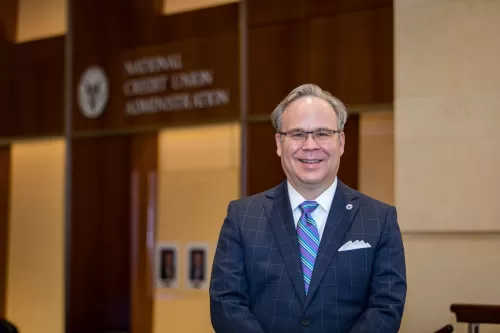NCUA Chairman Todd M. Harper at the NCUA's headquarters at Alexandria, Virginia.
As Prepared for Delivery on March 31, 2021
Please note that the views set out in my statement are my own views and do not reflect the views of the NCUA Board.
Thank you, Secretary Yellen, for including a discussion on climate change and its impact on financial stability on today’s agenda.
The data about extreme weather events and climate risk are clear. Climate change is accelerating and the number — and costs — of climate-related natural disasters is rising, often hitting disadvantaged communities the hardest.
According to the National Oceanic and Atmospheric Administration, we had a record-breaking 22 separate billion-dollar weather and climate disasters across the United States in 2020. These hurricanes, severe storms, drought, and wildfires cost a combined $95 billion in damages.
And, the markets are responding to this change. Some of the largest participants within the financial services industry have begun adjusting their business plans and committed to achieving net-zero carbon emissions in their activities.
In my view, the Council should focus on the financial risks related to climate change. And, each of us needs to manage that risk within our regulatory and supervisory frameworks. For the NCUA, by measuring, monitoring, and mitigating such risks, we can we fulfill our core obligations of maintaining the safety and soundness of credit unions, protecting consumers, and safeguarding the Share Insurance Fund.
In acting, I want to ensure that our regulated institutions remain resilient against all material risks, including the financial risks posed by climate change. By managing this risk, we will support U.S. economic growth.
Additionally, we must consider not only the macroeconomic impact of climate change, but also the microeconomic context. Most credit unions focus on mortgage, auto, and small business lending. Over time, climate change will affect the value of collateral like homes and commercial properties, especially in areas affected by extreme weather, and vehicles, as we transition to electric and hybrids.
And, a credit union’s field of membership is often tied to a business like an oil refinery or a community linked closely to farming. The movement to renewable energy and changes in weather patterns will affect their operations. To remain resilient, such credit unions will need to consider adjusting their fields of membership or altering lending portfolios.
In sum, the Council should quantify and determine the impact of climate change on the financial system, so that we each can take actions to lessen risk within the institutions we oversee. I look forward to coordinating with all of you on this important issue.



